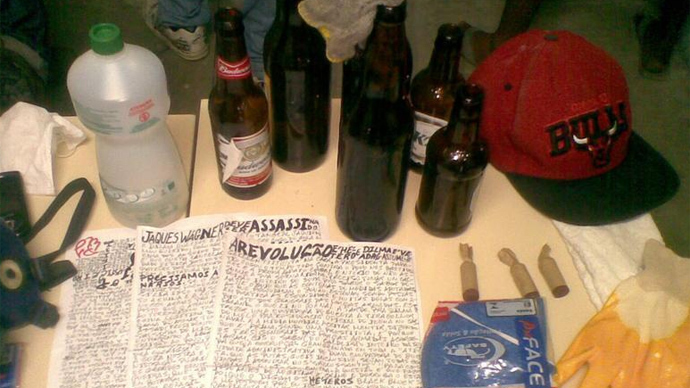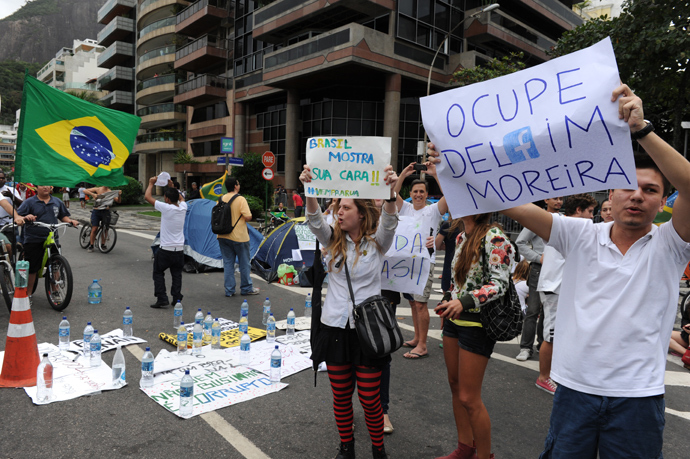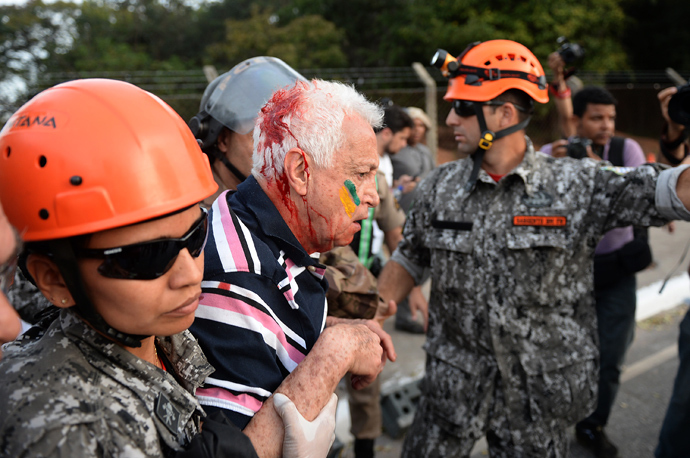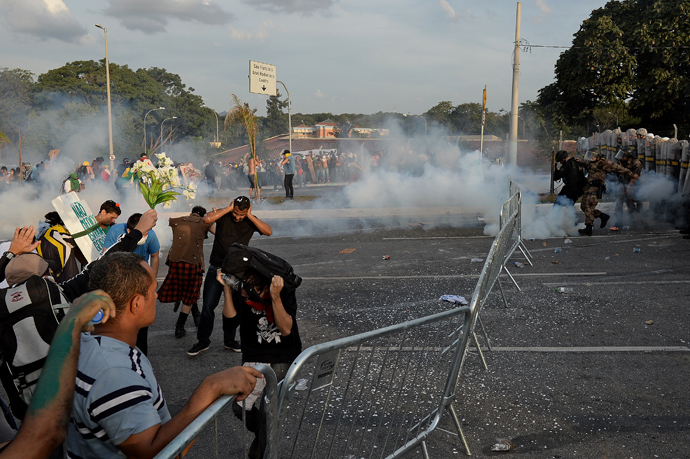A priest, a banker and a spook… not the start of a joke or a John LeCarre spy novel, but merely the latest addition to a long list of financial scandals involving the Vatican Bank.
Yet despite its quasi comedian if convoluted plotline, the latest attempt to defraud the Catholic church will likely pale in comparison to the most infamous incident involving the Institute of Religious Works (or IOR) as the Vatican Bank is also known. That one involves one Roberto Calvi, the chairman of Banco Ambrosiano, who in 1982 was found hanging from London’s Blackfriars bridge, a short distance away from JPMorgan’s gold vault, his pockets stuffed will cash and bricks in what at the time was a presumed hit by the mafia taking revenge for funds lost through the collapse of Calvi’s bank – a bank in which the Vatican was a significant shareholder.
That particular murder will likely remain unsolved, and the question whether the Vatican uses the mob as its tool of “retribution and righteous punishment” will remain unanswered, as the man who stonewalled the Vatican’s response at the time on the grounds of sovereign immunity: the US archbishop Paul Marcinkus who was then-head of the Vatican Bank, took his secrets to the grave with him in 2006.
This time, however, with plenty of living loose ends, we may finally get a glimpse into how deep the rabbit hole involving the legal, and more importantly illegal, (ab)use of Catholic funds really goes.
Fast forward to today when we learn courtesy of the FT that the priest involved in the developing financial scandal is one Monsignor Nunzio Scarano, 61, a banker-turned priest, who was ordained at the age of 35 after working for many years at the Banca d’America e d’Italia, a Naples-based lender which was acquired in the late 1980’s by Deutsche Bank. His Vatican career began in the financial wing of the Holy See, or Apsa, where he worked his way up to a senior post in the organization’s analytical accounting division. He had been recently suspended once the Vatican learned he was under investigation for alleged money laundering.
Scarano is said to have had two bank accounts in the Vatican Bank: a personal one and another one under the name of a charity for the elderly. He is also the owner of a luxury flat in the city center and has a majority stake in a construction company set up in 2012.
According to court documents Scarano’s money-launder network started in 2009, comprising of 60 local businessmen, and that his nickname in assorted circles, was “Monsignor 500” in reference to the large euro notes he carried with him.
In short, Scarano is the “priest” of abovementioned spy novel trio. Scarano collaborated with Giovanni Mario Zito, a former agent who is now a Carabinieri police officer and on loan to the Italian secret services aka, “the spook”, and Giovani Carenzo, a financial broker with offices in Switzerland and the Canary Islands, or the “banker”, to hatch a plot to bring some $52 million from a Swiss bank account for a family of shipbuilders in Scarano’s home town of Salerno, [located in Cosa Nostra’s favorite Sicily].
According to magistrate Nello Rossi, in July 2012 Scarano engaged the “spook” to help him get the money, held in a Swiss bank, into Italy without tax and customs controls. The “banker” was acting as a fiduciary for the owners of the money. Money, which at least for now, is unclear how it got into Switzerland in the first place.
As Reuters reports, “The three originally planned to bring back 40 million euros in cash but later reduced it to 20 million euros. A private plane went to Locarno from Rome and waited several days before returning to Rome without the money. The cash never left Switzerland because of disagreements and nervousness among the three, Rossi said, adding that cell phones that were used were later destroyed by being burned. Zito had promised to use his position in the secret services to avoid customs controls. The plane was to have been met on the runway of a Rome airport and the cash taken under armed escort to Scarano's home in Rome, Rossi said, calling the plot "intricately planned".”
It gets better: “Even though the money never left the Swiss bank, Zito, who is now in a military prison, demanded the payment he had been promised for his services.
Scarano gave Zito two checks, one for 400,000 euros and another for 200,000 euros. Zito cashed the first check but Scarano blocked the second before Zito could cash it by filing a false report that it had been lost.”
This is not the priest’s first transgression. In fact, He was suspended from his duties several weeks ago when he was placed under investigation by magistrates in Salerno. “In that investigation, his lawyer Silverio Sica said wealthy friends had donated money to Scarano in order for him to build a home for the terminally ill. According to Sica, his client wanted to use that money to pay off his mortgage so he could sell a property in Salerno and use the proceeds to build the care home.
Apparently to cover his tracks, Scarano has been accused of taking 560,000 euros in cash out of his account in the Vatican bank and giving various amounts to friends who gave him checks in exchange. He then deposited the checks into an Italian bank account to pay off the mortgage.”
So a current priest an former banker stealing money which was at least on paper supposed to go to a home for the terminally ill… Sounds about right for the New Normal.
In conclusion: “Rossi said his office would seek permission from the Vatican, which is a sovereign state, to question officials. "This is just a piece in a much larger mosaic," he said.
Of course, the question now is just how honest the new pope Francis was when he vowed to simplify and reform any shady dealings in the Vatican: because not even he likely has any idea just how deep this particular rabbit hole goes… or what will be revealed when the latest criminal thriller involving a priest, a banker and a spook reaches its climax.
Source: Zero Hedge

.jpg)
.jpg)
.jpg)
.jpg)
.jpg)
.jpg)
.jpg)
.jpg)
.jpg)








